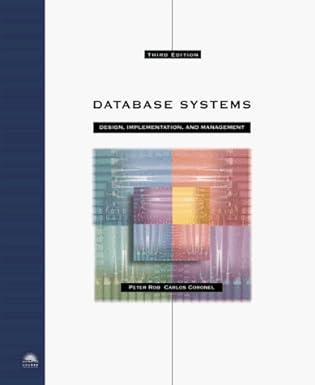Answered step by step
Verified Expert Solution
Question
1 Approved Answer
A very small cache has the following configuration: 2 - way associative, using an LRU replacement policy 8 sets 4 bytes per cache block yielding
A very small cache has the following configuration:
way associative, using an LRU replacement policy
sets
bytes per cache block
yielding a total capacity of bytes. The cache is initially all blocks invalid. When both blocks in a set are invalid, new data prefer way
An array of characters one byte each is located at address such that the index of each character in the array is exactly the address of that character. Indices in the array are accessed in the order given below.
Select the appropriate choices from the dropdowns to give the index of the first element in each block the base address of the block of the cache after all of the accesses are complete. In order to help you get started, we've done the first accesses for you, and to help you verify your work, some of the answers are provided for you; if your answers don't match the provided answers, you made an error in your calculations.
Addresses are accessed through the cache in the following order:
Working through the first accesses:
Initially, the cache is empty.
Address misses. It is added to at set way
Address misses. It is added to at set way
Address misses. It is added to at set way
Address misses. It is added to at set way
Address misses. It is added to at set way
Address misses. It is added to at set way
Address misses. It is maps to set where both ways are occupied. It replaces the LRU line in way
Address hits in set way
At this point, the cache has the following state:
Way has data in sets and ; sets and are invalid.
Way has data in sets and ; sets and are invalid
At set the block in way is least recently used.
At set the block in way is least recently used.
Complete the state of the cache after the remaining accesses. In those pulldowns which contain more than one address, the first number corresponds with way the second with way
Set : The block in way begins at address The block in way begins at address
Select
Set : The blocks begin at addresses
Select
Set : The blocks begin at addresses
Select
Set : The blocks begin at addresses
Select
Set : The block in way begins at address
Select
The block in way is invalid.
Set : The block in way begins at address
Select
The block in way is invalid.
Set : The blocks begin at addresses
Select
Set : The blocks begin at addresses
Step by Step Solution
There are 3 Steps involved in it
Step: 1

Get Instant Access to Expert-Tailored Solutions
See step-by-step solutions with expert insights and AI powered tools for academic success
Step: 2

Step: 3

Ace Your Homework with AI
Get the answers you need in no time with our AI-driven, step-by-step assistance
Get Started


